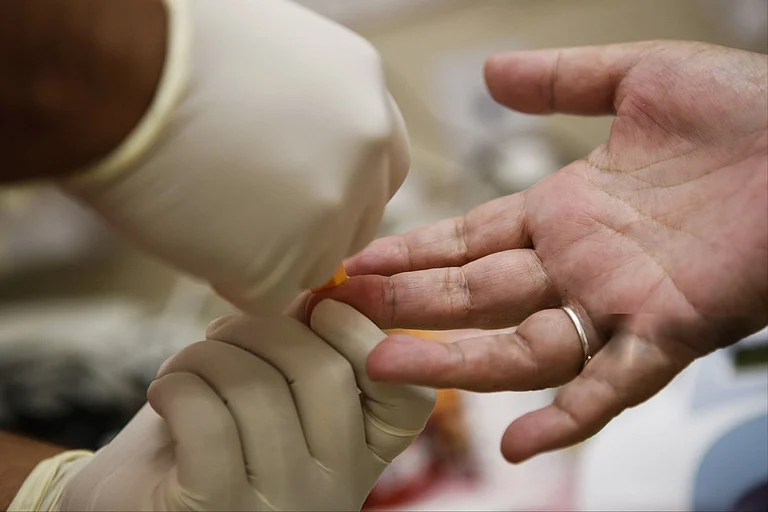A recent study found that sperm with fragmented DNA is linked to a higher risk of pre-eclampsia in women who become pregnant through in vitro fertilisation (IVF). As infertility rates rise worldwide, more couples are choosing IVF to have children. However, research indicates that these women face a greater risk of pregnancy complications, including pre-eclampsia, miscarriages, premature births, and low birth weights.
According to the study conducted by researchers from Lund University in Sweden around 20-30% of babies born through IVF have fathers with damaged DNA in their sperm, shown by an increased level of DNA fragmentation. DNA fragmentation refers to the breaking of the DNA strands in sperm cells. Although sperm with fragmented DNA can still fertilise an egg, the likelihood of success is much lower. If a man's DNA fragmentation index (DFI) score goes above 30%, the chances of successful fertilisation drop to nearly zero.
Amelie Stenqvist, a lecturer at Lund University and one of the study's corresponding authors, pointed out that although sperm samples are usually tested for concentration, motility, and morphology before IVF, some men with seemingly normal sperm may still have reduced fertility. This is due to the presence of fragmented DNA, which is not detected through standard sperm analysis.
The researchers aimed to investigate whether a high percentage of DNA damage in sperm could influence the risk of pre-eclampsia. Pre-eclampsia, a condition characterized by high blood pressure during pregnancy, is influenced by placental development, and half of the placenta’s DNA is inherited from the father. Aleksander Giwercman, a professor of reproductive medicine at Lund University and one of the authors of the study, noted that placental health plays a vital role in the prevention of pre-eclampsia.
The study analyzed data from nearly 1,600 couples who conceived through assisted reproduction techniques, focusing on 841 couples who underwent IVF. The findings revealed that a DFI score above 20% doubled the risk of pre-eclampsia and increased the likelihood of premature birth. However, when the DFI score was below 20%, the risk of pre-eclampsia in IVF pregnancies was similar to that of natural pregnancies.
The researchers concluded that a DFI test could be a valuable tool in identifying high-risk pregnancies, enabling better monitoring and care for couples undergoing IVF. This finding highlights the need to consider sperm DNA quality, in addition to traditional parameters, during fertility treatments.
(This story is a reworked version of a PTI feed)



























